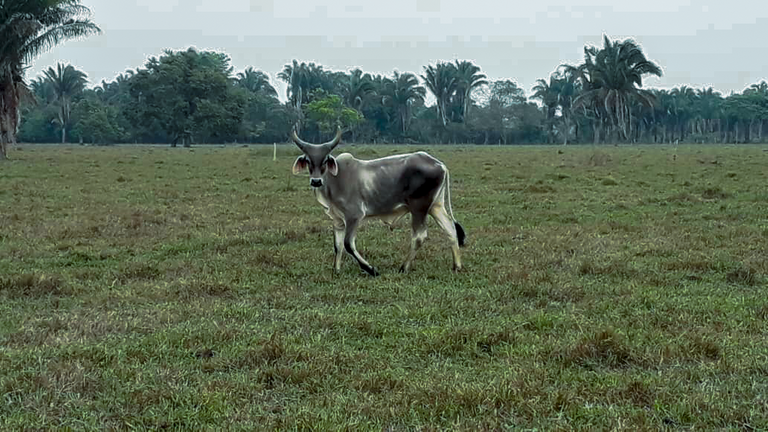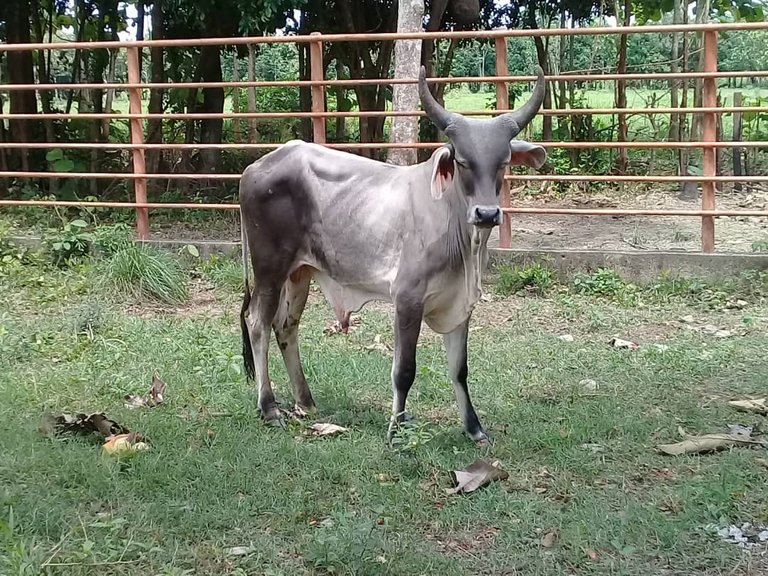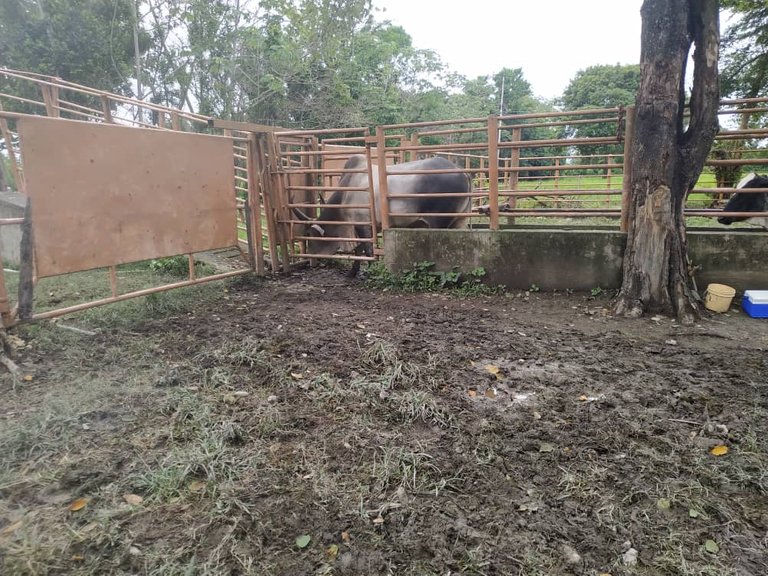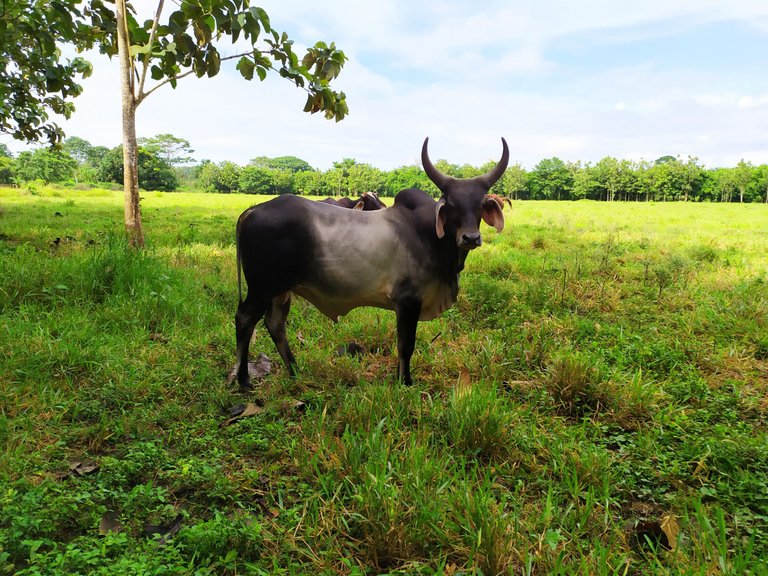¿Cómo llegué al campo venezolano?
Hace unos años mientras estudiaba Administración en la ciudad conocí a mi esposo, el estudiaba la misma carrera que yo y al finalizar decidimos ir al campo para que el trabajara sus tierras. Al principio él no tenía gran idea de cómo se manejaban las cosas ni quién lo asesorara, en ese tiempo si tenías tierra era porque sabías qué hacer con ella, lamentablemente en el país en ese momento estudiar Medicina Veterinaria no era una opción.
Hi Hivers! I hope you have a happy week, here I am to continue with my story. Today it will be about how I got into the venezuelan countryside and with my husband we bought a bull for $300.
How did I get to the Venezuelan countryside?
A few years ago while I was studying Administration in the city I met my husband, he was studying the same career as me and when he finished we decided to go to the countryside so that he could work his land. At first he had not a big idea how things were handled or someone who advise him, at that time if you had land it was because you knew what to do with it, unfortunately in the country at that time studying Veterinary Medicine was not an option.
Pasó el tiempo y los dos fuimos aprendiendo, por supuesto mi esposo tenía muchos más conocimientos que yo, mientras que yo aún no toleraba mucho el clima ni los animalitos, había crecido entre el Estado Aragua y el Estado Táchira, (zonas urbanas) no sabía diferenciar una vaca de un toro.
Poco a poco, con el contacto, paciencia y perseverancia los dos a nuestra manera fuimos creciendo en este entorno, comenzamos a trabajar con ganadería y es ahí cuando alguien publica en grupos de Whatsapp que necesita vender un animal con carácter de urgencia porque se va del país, nosotros no teníamos el monto completo pero aún así logramos concretar la compra.
El maute que adquirimos de raza Guzerá estaba en una situación crítica, la sequía en el sector dónde estaba era muy fuerte, mi esposo había investigado sobre la raza y me decía: no te preocupes esa raza se caracteriza por ser resistente, con buena alimentación superará esto.
The story of the bull...
Time passed and we both learned, of course my husband had much more knowledge than me, while I still did not tolerate the weather or the animals very much, I had grown up between the Aragua State and the Táchira State, (urban areas) I did not know differentiate a cow from a bull.
Step by step, with contact, patience and perseverance, we both grew in our own way in this environment, we started working with livestock and that's when someone posts in WhatsApp groups that they urgently need to sell an animal because he is leaving the country, we did not have the full amount but we still managed to finalize the purchase.
The bull that we acquired from the Guzerá breed was in a critical situation, the drought in the sector where it was located was very strong, my husband had investigated the breed and told me: don't worry, this breed is characterized by being resistant, with good nutrition it will overcome this.

Foto tomada en la finca dónde estaba el animal hace tres años/ The Picture was taken on the farm the animal was, three years ago
Llevamos al animal para la finca, le hicieron análisis de laboratorio y comenzamos a estudiar a fondo el comportamiento de la raza, descubrimos que era mejor usar el caballo para arrearlo.
En esta raza al ser animales tan altos se sienten superiores a nosotros, con el uso del caballo y una estaca con algo llamativo se le da la falsa ilusión de que nosotros somos superiores a ellos.
La estrategia fué genial para el operador pues todos le tenían miedo, el animal al no estar acostumbrado a la cercanía de las personas se colocaba nervioso, sin embargo no pasó a mayores, mientras lo dejaran con sus vacas y lo arrearan con caballo él estaba tranquilo.
I continued with doubts but I left everything in the hands of my husband, at that time we had received a farm; we had four cows but no bull, what does a milking do without a bull? absolutely nothing, even cows could fall behind, not to mention lack of productivity.
We took the animal to our farm and made it laboratory tests, we began to study in depth the behavior of the breed, we discovered that it was better to use the horse to herd it.
In this breed, being such tall animals, they feel superior to us, with the use of the horse and a stake with something striking, it gives them the false illusion that we are superior to them.
This strategy was great For the operator, because everyone was afraid of him, the animal, not being accustomed to the closeness of people, became nervous, however, it did not go too far, as long as they left him with its cows and herded it with a horse, it was calm.

En ese estado se encontraba el animal/ The animal was in this condition
Aquí les dejo unas fotos actuales, cómo podrán darse cuenta existen diferentes tipos de ganadería, una en la que no les importa la condición del animal y otra en la que sí se preocupan por su bienestar.
Con mucha convicción creo que no sólo importa el trabajo que hagas, debes hacerlo bien.
En este ejemplo la falta de humanidad queda a la vista. Si esa persona no se hubiese querido ir del país no vendía el animal y continuaba pasando hambre en el lugar dónde se encontraba, pues así lo afirmó.
Here I left you some current photos, as you can realize there are different types of livestock, one in which they do not care about the condition of the animal and another in which they do care about their welfare.
With great conviction I believe that not only matters the work you do, you must do it well.
In this example the lack of humanity is visible. If that person had not wanted to leave the country, he would not sell the animal and continue to go hungry in the place where it was, because the previous owner said so.

